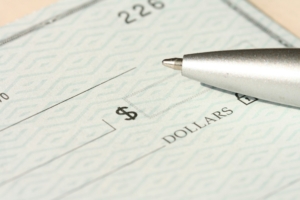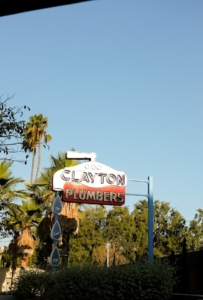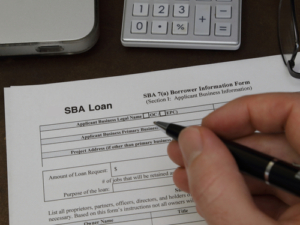“I Need the Business to Pay Me This Much”

Photo by Money Knack on Unsplash
Buying a business requires a balance between the purchase price, the revenue the business generates, and the costs of ownership. When you factor in debt repayment, taxes, and working capital, there’s often less left over for an owner’s salary than many people anticipate. That doesn’t mean business ownership is unattainable—it just means careful planning and realistic expectations are essential.
A typical business within reach of a modest down payment might provide enough free cash flow to cover its expenses and offer a comfortable salary for someone with minimal financial obligations. However, if you’re accustomed to a higher income or supporting a family, the gap between expectations and reality can be significant.
Not that long ago someone called our offices looking to buy a business. “I’ve got $150,000 saved up,” she said. “What can I buy that will get me a $350,000 salary because that’s what I make now.” This isn’t the first time we’ve gotten such a call, and as we usually do, we walk through the numbers.
$150,000 Down
Let’s say a reasonably sized business for a $150k down payment could generate around $350,000 a year in free cash flow. From that $350k, we will need to subtract annually:
- debt service on a typical SBA loan (rates are averaging 10% these days)
- an average working capital estimate for the business
- Income taxes
After working on the calculation, what does that leave for an annual owner’s salary? In this case, the available cash flow remaining for an owner’s salary might be in the $100-150k range. If the business doesn’t provide the necessary wage, a buyer may need to increase their down payment to reduce borrowing costs or adjust their expectations. To achieve that $350k salary, a buyer would probably need to invest at least to that level initially, which means a more significant business. Expect to invest at least 10% of the business value.
$300,000 Down
If she had $300k, which she might find through saving more, getting a partner, or using a retirement account to add funding to what she already had, we could look at a business that more readily meets her needs.
Now, we are much closer to her original request for $350k, as this business could get her a $250-300k annual salary. By tightening her belt a little bit now and by putting some great ideas to grow the business over time, that salary could quickly grow to $350k and beyond, and now, freed from her job, she would also be free from the financial and time constraints that a job puts on her.
Observations
You might note in our fictional example that doubling the down payment resulted in three times the potential salary. This is a general principle: the larger the initial investment, the larger the business you can buy, and the larger the annual salary/distribution the owner can take.
You might also realize now that you can come at this problem from either direction, either from how much you have to put down or how much you need to make. There are plenty of calculators online to help you play with numbers.
Finally, if you can’t match your current salary when buying a business, what sacrifices are you willing to make to accept that lower salary? Is your family on board for those sacrifices? If they aren’t, then there’s no point in proceeding further.
What size business are you looking to buy? Give us a call and we’ll tell you what we have available.





 We often think about how to package products or services for sale to potential customers, but we sometimes fail to use that process for packaging our business for sale.
We often think about how to package products or services for sale to potential customers, but we sometimes fail to use that process for packaging our business for sale. If you’ve ever paid any attention to the small business community on social media platforms like X, “boring businesses” are as popular as ever. The “bad” part of a boring business is that it’s not glamorous. The fun part? It reliably returns cash flow, day after day, month after month, year after year.
If you’ve ever paid any attention to the small business community on social media platforms like X, “boring businesses” are as popular as ever. The “bad” part of a boring business is that it’s not glamorous. The fun part? It reliably returns cash flow, day after day, month after month, year after year. While due diligence is a term that encompasses all the things you need to examine more closely when buying a business (or anything, for that matter), legal due diligence is a subset of that diligence that you need to pay attention to. Each of the categories we will mention in this article can be its own rabbit hole and it can sometimes be tempting to leave rabbit holes in peace, but for peace of mind when buying a business, you need to explore each one to make sure no surprises pop out after a sale.
While due diligence is a term that encompasses all the things you need to examine more closely when buying a business (or anything, for that matter), legal due diligence is a subset of that diligence that you need to pay attention to. Each of the categories we will mention in this article can be its own rabbit hole and it can sometimes be tempting to leave rabbit holes in peace, but for peace of mind when buying a business, you need to explore each one to make sure no surprises pop out after a sale. While no one is usually excited to hear about changes to a government program (more fine print to read?) we here at Apex are pleased to see some of the changes coming in August 2023 to
While no one is usually excited to hear about changes to a government program (more fine print to read?) we here at Apex are pleased to see some of the changes coming in August 2023 to  A fair number of would-be buyers come to us still in the midst of their careers, so they have been used to a certain income level for some time. They’ll tell us, “I need to make X,” and it’s almost never lower than their current salary. While we understand that perspective, let’s put that within the frame of a business transaction.
A fair number of would-be buyers come to us still in the midst of their careers, so they have been used to a certain income level for some time. They’ll tell us, “I need to make X,” and it’s almost never lower than their current salary. While we understand that perspective, let’s put that within the frame of a business transaction.